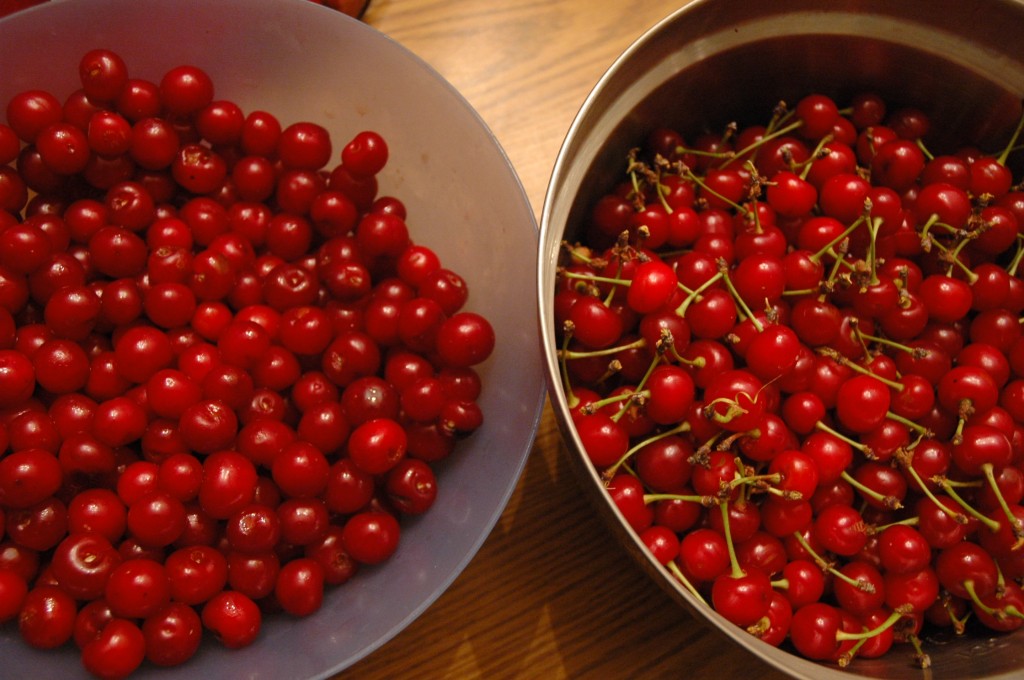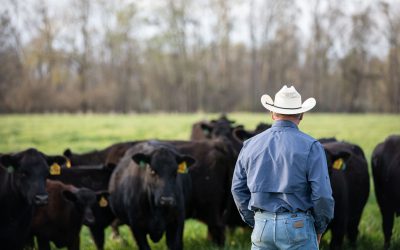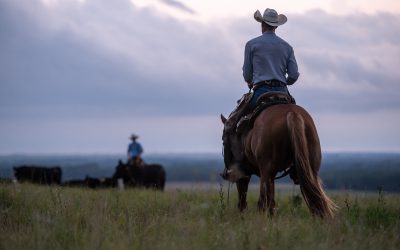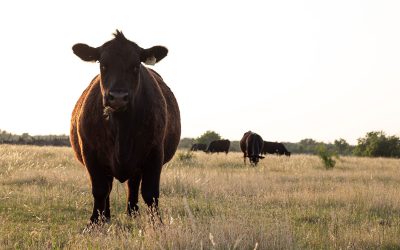
Picking which traditions to keep
I should note: My husband would be the expert cherry-picker of the clan, having grown up with two bountiful Montmorency trees in his back yard.
I began to fill my bucket as he set off to fill his, both of us with plenty of extra “help.” Before long he noticed I hadn’t been leaving stems on. (I mean, why would I? They’d quickly be frozen or, better yet, in a fresh cherry pie!)
“My mom was always very particular about leaving them on,” he said. “I guess they keep better that way.”

Later I was chatting with my mother-in-law, telling her what an “adventure” the kids thought cherry picking was and asking about her pie recipe. Just before we hung up, she said, “Oh and when you pick cherries don’t leave the stems on.”
Stifling a laugh, I listened on: “Growing up on our home farm we had all kinds of cherry trees and Mom always insisted we leave the stems on. So that’s what I always did. But a few years ago I read that it’s better for the tree if you don’t.”
Moral of the story: Whether in cherry picking or cattle ranching, it’s okay to question tradition to make sure it still makes sense.
Do you have anything you’re doing just because it’s the way mom or dad always did it? Any of those traditions you brought with good reason? We’d love to hear about it!
May your bottom line be filled with black ink,
Miranda
You may also like
Progress from small steps
Every day is a chance to learn and get better. Thousands of others like my new friends in Alabama are taking steps to meet the shifts in consumer demand, and to know more. Small steps in the right direction can start now. Even if it’s just recording a snapshot of where you are today, a benchmark for tomorrow.
Not perfect, but working to get better
The CAB Cattleman Connection team heard its name called more than once in the virtual ceremonies, and each time came a sense of personal accomplishment, but even better: confirmation that we’re getting better at our craft. I hope that means we’re doing a better job for you.
Beefed up findings
Frank Mitloehner presents his findings on the animal ag sector’s impact on global warming. He explains how cattle counterbalance other fossil fuel sectors, proving that cattle are a solution and not a threat.



